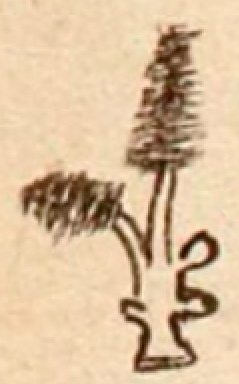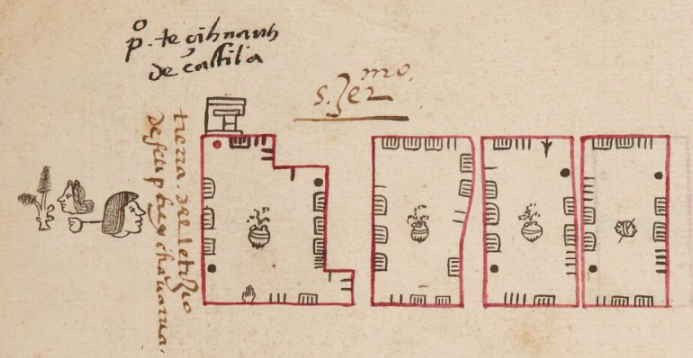huauhtli (Verg12r)
This black-line drawing of the element huauhtli (amaranth) has been carved from the compound glyph for the personal name Tecihuauh. It shows a vertical plant with two densely flowering stalks and three additional, short nubs on the stem. The flowers have an emblematic series of short horizontal lines, resulting in the look of a brush.
Stephanie Wood
This sign serves as a phonetic value in words containing "hua" and "huauh." But it is also a key item of the Nahua diet, still eaten in significant quantities today. It is a gluten-free and nutritious quasi-cereal and protein with various health benefits. Figures representing divine forces were shaped with amaranth mixed with honey. It also had such an important place in Nahua spiritual beliefs and activities that the colonizers were fearful it could impede the acceptance of Christianity, so they tried to outlaw its cultivation.
Stephanie Wood
1539
Jeff Haskett-Wood
comida, cereales, plantas, semillas, seeds

huauh(tli), amaranth, https://nahuatl.wired-humanities.org/content/huauhtli
el amaranto
Stephanie Wood
Codex Vergara, folio 12r, https://gallica.bnf.fr/ark:/12148/btv1b84528032/f31.item.zoom
The non-commercial reuse of images from the Bibliothèque nationale de France is free as long as the user is in compliance with the legislation in force and provides the citation: “Source gallica.bnf.fr / Bibliothèque nationale de France” or “Source gallica.bnf.fr / BnF.” We would also appreciate a citation to the Visual Lexicon of Aztec Hieroglyphs, https://aztecglyphs.wired-humanities.org/.




